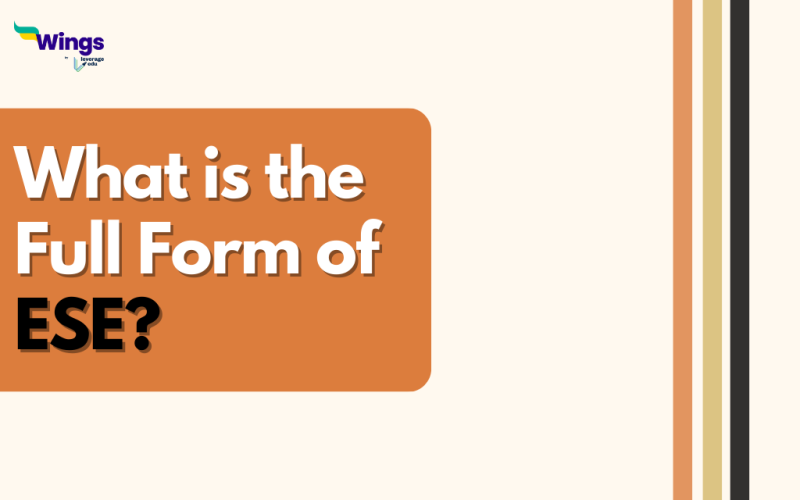ESE Full Form: ESE stands for Engineering Services Examination. UPSC administers the ESE every year. ESE is a national-level test held to select applicants for Group A/B services and positions in Civil Engineering, Mechanical Engineering, Electrical Engineering, and Electronics and Telecommunication Engineering. Candidates with a B.Tech degree and an age between 21 and 30 years old can apply for the UPSC ESE test, according to the qualifying criteria.
Candidates who pass the exam are hired as engineers in various departments/ministries of the Government of India.
Advantages of ESE
Table of Contents [show]
The following are some of the advantages of ESE:
- Prestige: The ESE is a very competitive examination, and those who pass it are held in great regard in society.
- Job Security: Engineers who pass the ESE are appointed to coveted government posts that provide employment security and stability.
- Salary and Other Benefits: Engineers that pass the ESE are paid highly and are eligible for several bonuses and privileges like medical insurance, housing, and travel allowance.
- Growth Opportunities: Engineers who pass the ESE have the chance to work on a variety of projects and can also pursue additional education to advance their profession.
- Exposure: Engineers who pass the ESE have the ability to work in a variety of industries such as power, telecommunications, and so on, which gives them exposure and experience
Disadvantages of ESE
Along with the advantages, there are some disadvantages associated with ESE. Check them out below:
- Tough competition: The ESE is a highly competitive exam, with only a tiny percentage of students passing it. This can be discouraging for those who do not make the cut.
- Long and intensive preparation: Candidates who want to pass the ESE must put in a lot of effort and attention to prepare for the test. This can take time and be stressful.
- Strict eligibility requirements: Only certain types of individuals are eligible to take the ESE, and the eligibility requirements are stringent.
- Limited job opportunities: Because the number of positions accessible through the ESE is limited, not all candidates who pass the exam will be hired.
- Bias towards particular fields: Some candidates may believe that the ESE is biased towards certain disciplines, such as electrical and mechanical engineering because these have a higher weightage in the examination.
- Relocation: Engineers who pass the ESE may be required to relocate to different parts of the country for their profession, which can be problematic for certain applicants with family or other obligations.
Must Read: What is the SDRF full form?
Must Read: What is the Full Form of ALC?
This was all about ESE full form. To learn more about acronyms and abbreviations, follow our page now!!
 One app for all your study abroad needs
One app for all your study abroad needs















 45,000+ students trusted us with their dreams. Take the first step today!
45,000+ students trusted us with their dreams. Take the first step today!
